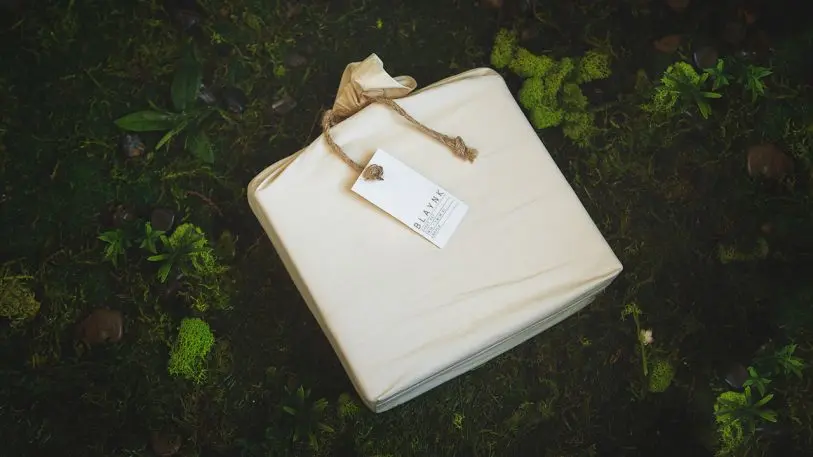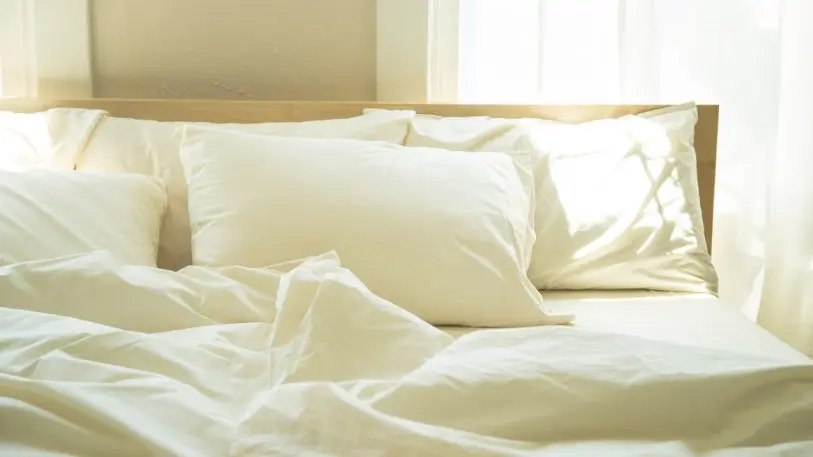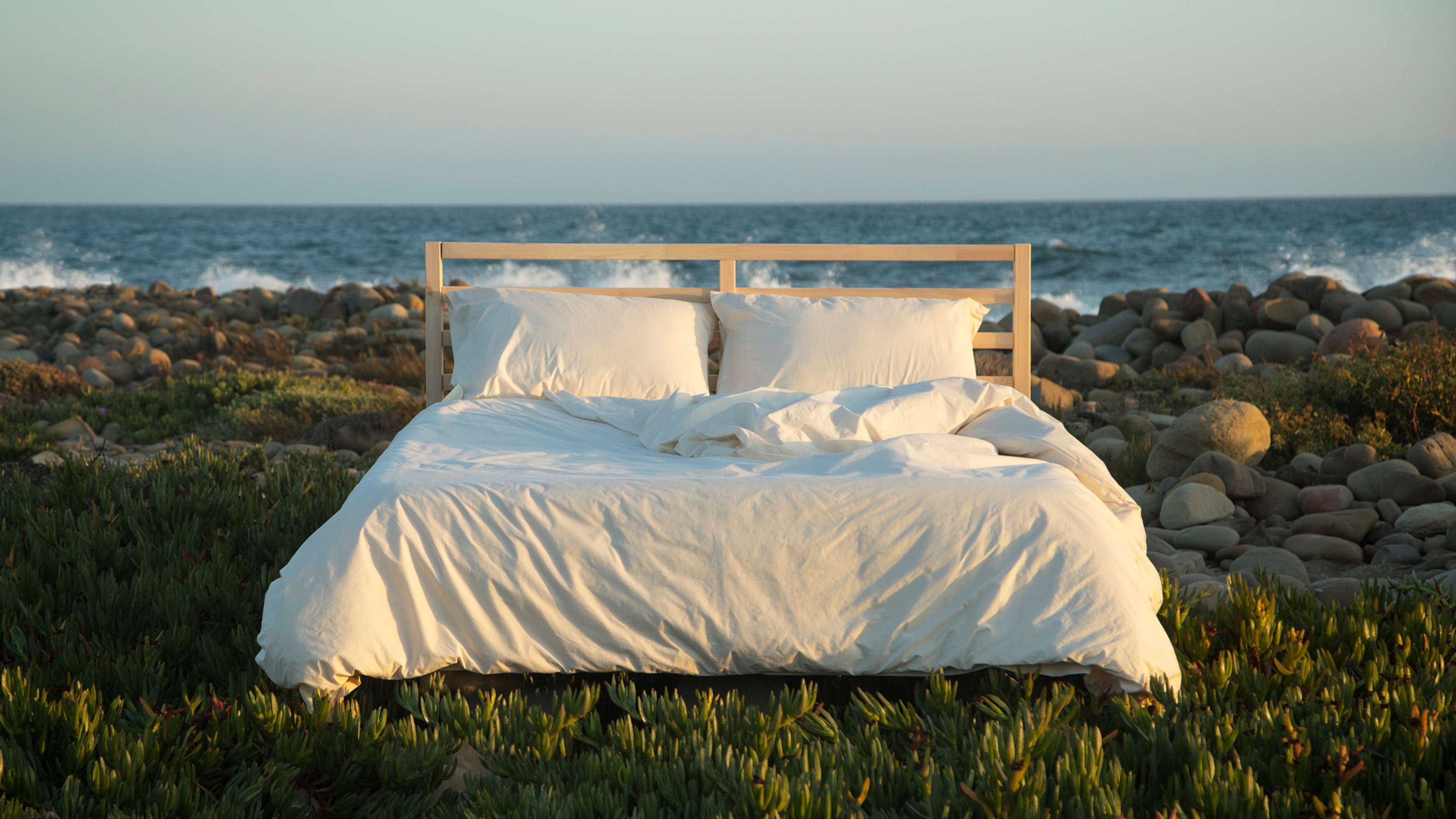It has such a reassuring, healthy ring to it: organic cotton. Falling asleep at night, you imagine that amid organic sheets, you’ll experience a more restful, chemical-free slumber. And while it’s true that the cotton spun into the sheets may have been grown without pesticides, the “organic” label doesn’t cover that which comes after–all the processing, dying, and finishing that injects a fair amount of chemicals into the supposedly pure product.
Blaynk, a new bedding company, says its pushing beyond the “organic” label and creating sheets made from just two ingredients: cotton and rainwater. (Despite the extraneous “Y,” the company’s name is pronounced just like the word “blank.”) Founder Lauren Page’s grandparents opened a foam and fabric business in Rochester, New York in 1879; her first job was working for their company, which launched her career path in consulting for the textile industry. But as Page gained more exposure to manufacturing practices, she grew disillusioned with the idea that any textile produced by mainstream methods could ever honestly bear the designation of organic.
But organic cotton textiles are still a minuscule part of the overall textile market: Just 0.7% of cotton grown globally is done so without chemicals. The remaining 99.3% is the most pesticide-intensive crop worldwide, accounting for anywhere between 16% and 25% of total global pesticide use. For conventional and organic cotton alike, the post-harvest process is where the industry’s chemical footprint deepens: Spinning oils are generally employed to reduce friction as the cotton is converted into yarn, and strengthening chemicals like formaldehyde and flame retardants are added to the material as it’s woven to prevent breakage. Around 20% of the world’s industrial water pollution comes from textile production and dyeing; around 200,000 tons of synthetic dyes from the industry stream into the global water supply each year.
The idea that a quality textile could be produced without relying on chemicals, Page says, “is at the core of Blaynk.” Her company follows in the footsteps of those like Boll & Branch, whose founders similarly became disillusioned with mainstream cotton production and became, in 2016, the first Fair Trade certified bedding company. Blaynk partnered with Chetna Organic, a nonprofit organization, certified by Fair Trade USA, the Global Organic Textile Standard, and Fairtrade International, that works with cotton growers in India to grow non-GMO crops without pesticides.

The motivation for doing away with chemicals, Page says, was two pronged. On the one hand, Blaynk is tapping into an increase in consumer demand for clean, traceable products; its bed linens and crib sheets are undyed and unpatterned to highlight the cotton’s natural color, and while Page says she recognizes that unique and vibrant sheets are often something consumers seek out, she believes the company’s ethics and methods will attract people interested in eliminating chemicals from their homes. Those same people will also be willing to pay a premium: Blaynk’s sheet sets range from $129 to $299.

Blaynk is still very new: Page began researching alternatives to chemical textile production around a year and a half ago, and the Kickstarter launched August 8. But Page already has a plan in place for when people decide to switch out their current sheets for Blaynk: Every shipment comes with a prepaid label, which customers can affix to a box and mail their old sheets back to Blaynk’s offices, instead of adding them to landfill along with the 13 million pounds of annual textile waste that accumulates there. Page has formed partnerships with textile recycling companies like Miller Waste Mills, that will either upcycle or recycle the sheets. “This is so important to me—we all can recycle our paper and plastic fairly easily, but just because you’re getting new bed sheets shouldn’t mean you have to contribute to the waste,” Page says.
Recognize your brand’s excellence by applying to this year’s Brands That Matter Awards before the early-rate deadline, May 3.
